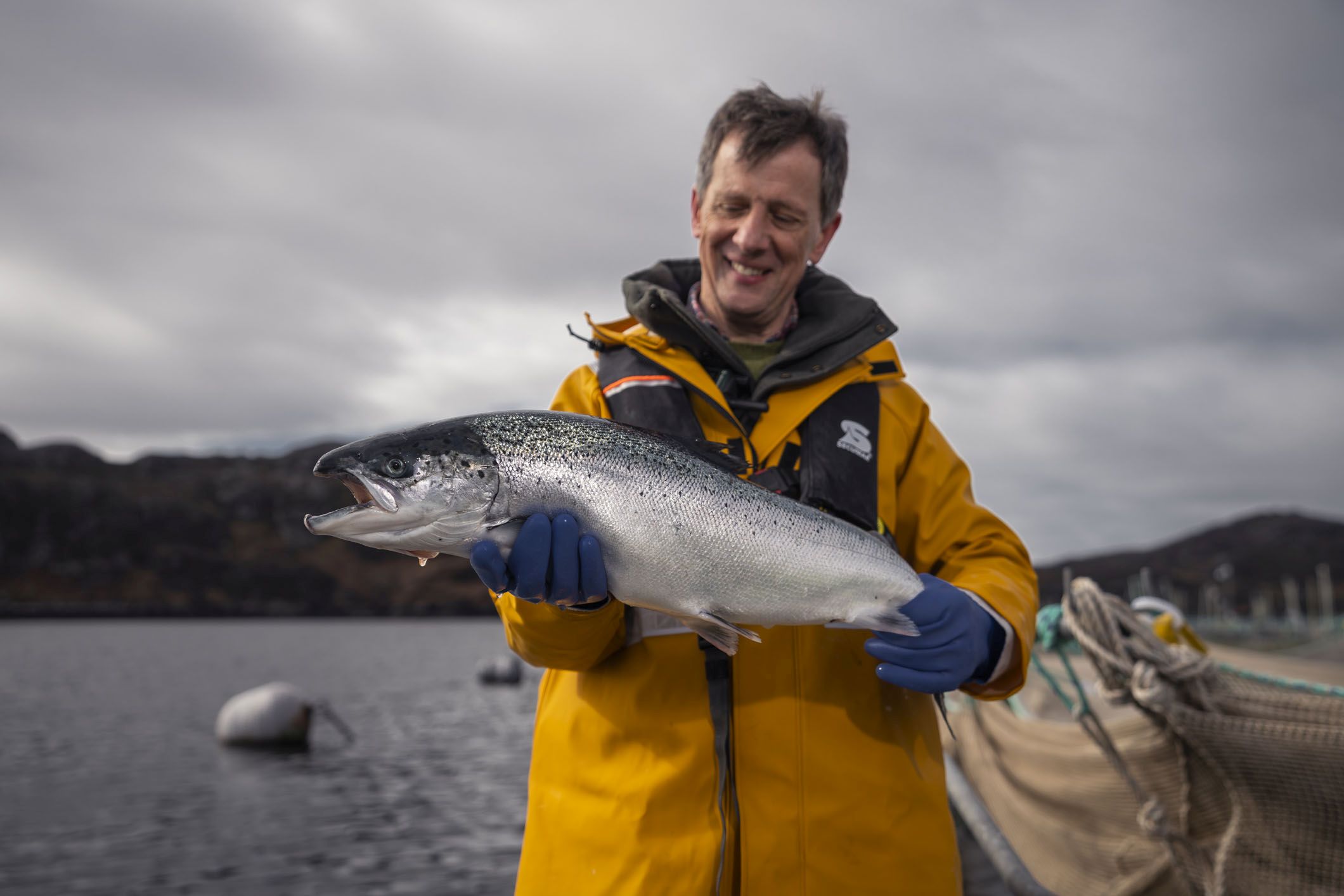Focus on freshwater in gill health study

SCOTTISH aquaculture experts are aiming to determine the optimal water conditions for treating salmon with gill health issues.
A consortium – including Loch Duart, Nevis Marine, Stirling’s Institute of Aquaculture, Pulcea, Norway’s Institute of Marine Research, and the Scottish Aquaculture Innovation Centre (SAIC) – will test the effect of fresh and low salinity water on fish’s gills.
The project could also help find new ways of reducing the impact of sea lice.
Using freshwater to treat fish affected by amoebic gill disease is a well-established practice in aquaculture.
However, transferring seawater adapted salmon to freshwater conditions can cause short-term stress for the fish and, in some cases, lead to mortalities.
Some types of cleaner fish are also averse to freshwater conditions.
Building on research undertaken by salmon farmer Loch Duart, the consortium will use a range of techniques – including gas infusion from Canada, membrane filtration from Norway, and water quality monitoring from Australia – to test the effect of a variety of water parameters on fish, including temperature, oxygenation, pressure, salinity, and pH levels.
The project will then seek to determine the right balance of conditions for treating salmon with compromised gill health.
The project aims to support the Scottish government’s Farmed Fish Health Framework, which identifies gill health as a major challenge for the aquaculture sector, by reducing the stress on fish during treatment, decreasing the use of medicines, and creating better conditions for cleaner fish.
Giada Desperati, R&D coordinator at Loch Duart, said: ‘Knowledge of how salmon’s gills react to different water conditions is a relatively nascent area of research – but it’s vitally important that we improve treatments and understand how it can affect fish.
‘This project touches everything in the aquaculture industry and could have a transformative effect on the treatment of salmon health.
‘While the primary area of enquiry is on gill health, the results could also point us towards more suitable conditions for cleaner fish and the treatment of sea lice – another of the industry’s biggest challenges.’
Dr Sophie Fridman, from the Institute of Aquaculture, added: ‘With the increasing prevalence of gill challenges impacting Scottish fish farmers, interventions to protect salmonid gill health have become an essential part of fish health management strategies.
‘However, these treatments are not without their risks and impose a physiological strain on already health compromised fish.
‘Studying the impacts of freshwater treatments is therefore an extremely timely area of research – our aim is to optimise these treatment regimens and improve fish health and welfare under commercial field conditions.’
Caroline Griffin, aquaculture innovation manager at SAIC, said: ‘Gill health is one of the biggest challenges facing aquaculture across all salmon producing countries.
‘It is an internationally significant issue, which we’re aiming to address through this pioneering project, building on previous research we have supported.
‘The health of a fish’s gills is absolutely critical to its overall wellbeing and finding new ways of treating issues affecting them, without relying on medicine, could be highly significant for the industry.’

